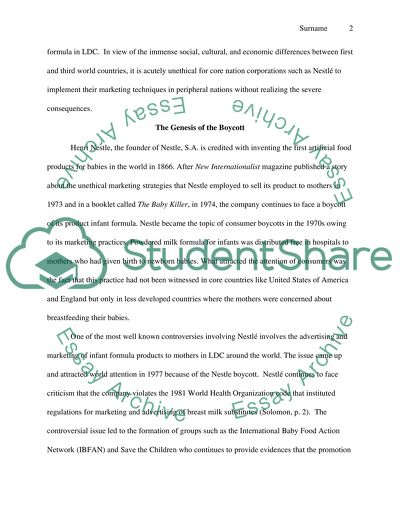Cite this document
(“Global Media and the Nestle Boycott Essay Example | Topics and Well Written Essays - 2250 words”, n.d.)
Global Media and the Nestle Boycott Essay Example | Topics and Well Written Essays - 2250 words. Retrieved from https://studentshare.org/journalism-communication/1459489-global-media-and-the-nestle-boycott
Global Media and the Nestle Boycott Essay Example | Topics and Well Written Essays - 2250 words. Retrieved from https://studentshare.org/journalism-communication/1459489-global-media-and-the-nestle-boycott
(Global Media and the Nestle Boycott Essay Example | Topics and Well Written Essays - 2250 Words)
Global Media and the Nestle Boycott Essay Example | Topics and Well Written Essays - 2250 Words. https://studentshare.org/journalism-communication/1459489-global-media-and-the-nestle-boycott.
Global Media and the Nestle Boycott Essay Example | Topics and Well Written Essays - 2250 Words. https://studentshare.org/journalism-communication/1459489-global-media-and-the-nestle-boycott.
“Global Media and the Nestle Boycott Essay Example | Topics and Well Written Essays - 2250 Words”, n.d. https://studentshare.org/journalism-communication/1459489-global-media-and-the-nestle-boycott.


